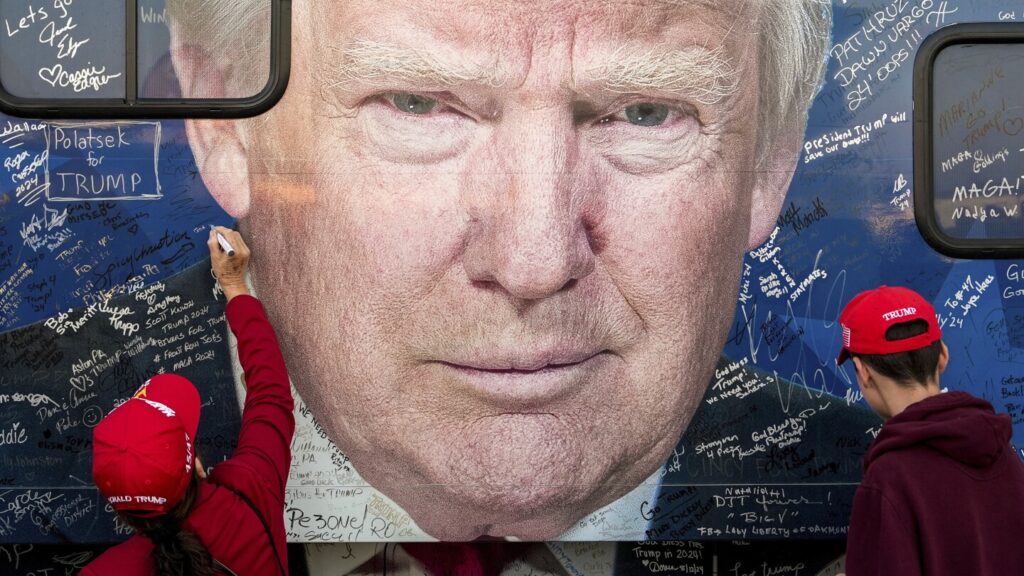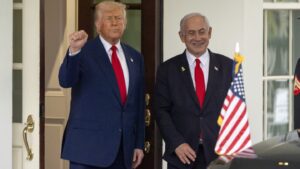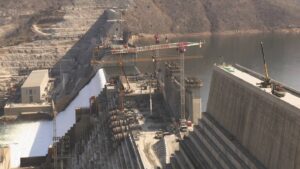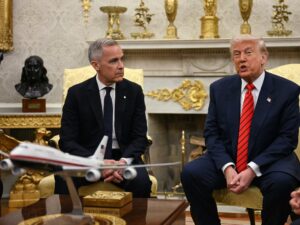
FRONT ROYAL, Va. – As President Donald Trump prepares to order the bombing of Iran’s nuclear sites, prominent leaders within his “Make America Great Again” movement caution against potential pitfalls. Despite these warnings, interviews and early polling reveal strong backing from his voter base.
Immediate Impact
Prominent MAGA figures such as Tucker Carlson and Charlie Kirk have expressed concern over the decision, suggesting it could lead to unwanted conflict. Steve Bannon, Trump’s former chief strategist, warns that intervention might derail key priorities like mass deportations.
Yet, many Trump supporters across the nation are applauding his decisive action. Ken Slabaugh, a retired Air Force veteran from Warrensburg, Missouri, expressed unwavering support, stating the necessity of the strikes against Iran’s nuclear ambitions.
“The Iranians can’t be trusted and they certainly can’t have a nuke,” Slabaugh said, emphasizing his belief in Trump’s approach.
Key Details Emerge
Across the country, Trump voters echo similar sentiments. At an American Legion post in Brunswick, Maryland, Denny Bayer, a 72-year-old Army National Guard veteran, described the attacks as “awesome” and aligned with Trump’s promise of global peace.
In Front Royal, Virginia, retired drywaller Stacey Roles, 77, voiced his support, stating, “Trump’s decision was the right one.” Roles identifies as part of the MAGA movement, reinforcing the president’s base support.
Targeting ‘a Bully’
In Oklahoma, longtime GOP leader Pam Pollard expressed initial support for the military action, viewing Iran as a regional bully. However, she remains concerned about the activation of terrorist cells worldwide.
“I am very fearful of that all over the world, not just in America,” Pollard remarked.
By the Numbers
A Quinnipiac University poll indicates that about 80% of registered Republican voters support the U.S. joining Israel in striking Iran’s nuclear sites. Conversely, 75% of Democratic voters oppose the action.
While Republicans largely back the military action, the poll reveals a divided public, with half disapproving of the strikes. Concerns about potential escalation into a protracted conflict remain high.
Background Context
Trump’s presidency has been marked by a complex relationship with foreign intervention. Despite campaigning against “forever wars,” he has not shied away from decisive military actions, such as the 2019 raid that killed ISIS leader Abu Bakr al-Baghdadi and the 2020 assassination of Iranian General Qassem Soleimani.
In March, Trump ordered airstrikes against the Houthis in Yemen, underscoring his willingness to use military force in the Middle East.
Expert Analysis
Bill Cantle, a Republican from Clearwater, Florida, supports Trump’s actions, advocating for a complete resolution to the Iranian threat. Meanwhile, Peter Espinosa, a retired Army sergeant from Doral, Florida, views Trump as a disciplined peacekeeper.
“We just need to fight the hostility that’s going on in the Middle East right now,” Espinosa stated.
What Comes Next
As the situation unfolds, the administration faces both domestic and international scrutiny. Clark Spieles, a trustee in Shawnee Township, Ohio, expresses confidence in the current strategy, emphasizing a desire for peace.
The announcement comes as the global community watches closely, with future developments likely to shape the geopolitical landscape. The timing is particularly significant as it tests the resilience of Trump’s support base amidst escalating tensions.
Gomez Licon reported from Fort Lauderdale, Florida; Schreiner from La Grange, Kentucky; and Colvin from New York. Associated Press polling editor Amelia Thomson-DeVeaux in Washington, and AP Writers Nicholas Ingram in Knob Noster, Missouri, and Julie Smyth in Lima, Ohio, contributed to this report.





